Ten events that define Israeli killing machine’s half a year of war on Gaza
By Maryam Qarehgozlou
Israel’s no-holds-barred war on the besieged Gaza Strip hit the half-year mark on Sunday, leaving behind a trail of death, destruction, displacement, disease and starvation with no end in sight.
The genocidal aggression which began on October 7 in the aftermath of Operation al-Aqsa Strom has so far killed over 33,200 Palestinians, displaced more than 2 million, and destroyed 70 percent of the civilian infrastructure, including homes, hospitals and schools.
With the Israeli regime weaponizing starvation and blocking humanitarian aid into the coastal territory, Gaza’s entire 2.3 million population is facing crisis-level hunger.
The six months of onslaught on Gaza have been marked by indiscriminate bombings, crippling siege, murder and abuse of children and women and the humanitarian crisis, rendering the place uninhabitable.
Following are the ten events that defined the six months of Israeli genocidal war on Gaza.
Bombing of al-Ahli Arab Hospital
On October 17, 2023, Israel bombed the al-Ahli Arab Hospital in northern Gaza, where many civilians had sheltered from relentless Israeli strikes. The regime claimed that the hospital was a base of Hamas.
According to Gaza’s Health Ministry, the devastating strike killed more than 500 people, including patients and displaced Palestinians, the highest toll in any single incident in Gaza at the time.
As the dastardly attack sparked international condemnation and outrage, the Israeli military denied responsibility, attributing it to a failed rocket fired by Hamas or Palestinian Islamic Jihad (PIJ).
However, the concocted Zionist theory did not hold any water, as the evidence suggested.
Israel’s Western allies, particularly the US, doggedly supported the regime’s unsubstantiated claim and their pro-Israeli media outlets also toed the official Israeli narrative.
Even President Joe Biden fell for the hoax and blamed the Palestinian resistance for the attack.
The United Nations Relief and Works Agency for Palestine Refugees in the Near East (UNRWA) described the attack as “outrageous” and “a flagrant disregard for the lives of civilians.”
Orthodox church hit by Israeli air strike
On October 20, 2023, an Israeli strike left a “large number of martyrs and injured” at the compound of the Greek Orthodox Saint Porphyrius Church in Gaza City, according to Gaza’s Interior Ministry.
Gaza officials later announced that at least 16 Christian Palestinians were killed at the 12th-century place of worship where more than 500 Christian and Muslim Gaza residents had taken shelter from the indiscriminate aerial blitz of the Israeli warplanes.
The Israeli military at the time claimed the church “was not the target of the strike,” saying its fighter jets hit a nearby command and control center that was used to carry out attacks against Israel.
“As a result of the IDF [Israeli military] strike, a wall of a church in the area was damaged,” it said, adding “We are aware of reports on casualties. The incident is under review.”
However, according to multiple witnesses, the damage inside the church was extensive and it was caused by the Israeli military strike.
“This shows that the targets of the Israeli occupation are the unarmed people, children, women and the elderly,” the Palestinian Churches Council said in a statement at the time.
Justifying the damage done to the oldest church still in use in Gaza, the Israeli military claimed that “Hamas intentionally embeds its assets in civilian areas and uses the residents of the Gaza Strip as human shields.”
Israel’s ground invasion
After weeks of relentless bombardments, Israel launched a ground offensive into northern Gaza on October 27, 2023, paving the way for broad daylight massacres.
Mark Regev, senior adviser to Israeli Prime Minister Benjamin Netanyahu, said at the time that an “expansion” of ground operations in Gaza means Israel’s army is “beefing up the pressure on Hamas.”
He added that "pressure will increase and continue to increase until we achieve our goal.”
Israel was urged against the ground invasion by the international community, warning that it would multiply the number of civilian casualties in the densely populated coastal strip and ignite a wider war.
Save the Children, the advocacy group working to protect the rights of children warned at the time that “children are at heightened risk of loss of life, physical harm, severe emotional distress, and protracted displacement following the announced ‘expanded ground operations’ by Israeli forces in the Gaza Strip.”
The ground invasion, however, failed to deliver any results for the regime. Its stated objectives remained unfulfilled as the Palestinian resistance continued to deal heavy blows on the occupation.
A short-lived truce
A temporary truce between the Hamas resistance movement and the Israeli regime began on November 24 and was renewed twice before ending on December 1.
Under the terms of the truce, fighting was paused and humanitarian aid was allowed to enter Gaza.
However, the UN humanitarian office, OCHA, reported that despite the pause in fighting, Israeli forces shot at Palestinians in Gaza on November 29, killing many. They also shelled people on November 30.
Also, as part of the truce, Hamas released 110 of the nearly 240 captives it held following Operation al-Aqsa Strom in exchange for Israel releasing 240 Palestinians held illegally in Israeli prisons.
Nonetheless, at the same time, Israel arrested about the same number of Palestinians in the occupied West Bank and East al-Quds.
Israel resumed its deadly aerial bombardment on Gaza, minutes after the truce expired, claiming that its so-called ‘Iron Dome missile defense system’ had detected incoming rockets.
After the truce was breached by the regime, it carried out genocidal attacks on Palestinians in both northern and southern Gaza with more ferocity.
Israel assassinates Hamas deputy chief Saleh al-Aroori
On January 2, Saleh al-Arouri, deputy chief of Hamas’ political bureau, was assassinated with five others in an Israeli drone attack that targeted a Hamas office in the southern Beirut suburb of Dahiyeh.
Hamas called al-Arouri’s killing a “cowardly assassination” by Israel, adding that attacks on Palestinians “inside and outside Palestine will not succeed in breaking the will and steadfastness of our people, or undermining the continuation of their valiant resistance.”
Al-Arouri, 57, was one of the founders of the Hamas’ armed wing, the Al-Qassam Brigades, who was on the regime’s ‘kill list’. Netanyahu had threatened to kill him before the war began on October 7.
While Regev said Israel does not take responsibility for this attack, Danny Danon, a former Israeli envoy to the United Nations, hailed the attack and congratulated the Israeli army, Shin Bet and Mossad, Israel’s notorious intelligence agency, for assassinating the prominent Hamas leader.
His assassination came weeks after he visited Iran and was interviewed by Press TV.
ICJ interim ruling against Israel
The International Court of Justice (ICJ) on January 26 found it “plausible” that Israel’s acts could amount to genocide and issued a series of provisional measures that required the apartheid regime to comply with the 1948 Genocide Convention, allow more humanitarian aid into Gaza and act against those who issue genocidal statements.
The landmark genocide case against Israel at the top UN court was filed by South Africa in December.
However, the interim ruling stopped short of ordering Israel to pause or stop its devastating war on Gaza which had killed more than 26,000 Palestinians by the time the court passed the ruling.
A week after ICJ announced its decision, Israeli minister for military affairs Yoav Gallant made clear that Israel does not intend to cease its genocidal attacks in Gaza anytime soon.
By ignoring the ruling and continuing its genocidal offensive in Gaza, Israel has killed at least six thousand more civilians to date since late January.
Last month, international charity group Oxfam said in a report that Israel is “deliberately” hindering aid supplies headed into Gaza, breaking another key provision demanded by the ICJ to boost humanitarian aid in light of the risk of genocide in Gaza.
Moreover, the same day that ICJ concluded that Israel is plausibly committing Genocide in Gaza Israel alleged that 12 employees of the UN Relief and Works Agency for Palestine Refugees (UNRWA) had been directly involved in the Hamas October 7 operation.
Following this, UNRWA’s major donors including the United States, United Kingdom, Germany and others suspended their funding to the main humanitarian agency in Gaza providing food, shelter and medical supplies.
The flour massacre
On February 29, 118 Palestinians were killed and 760 injured after the Israeli military fired into a crowd of starving Palestinians at al-Rashid Street in Gaza City, an incident known as the ‘flour massacre’.
While Israel claimed that many Palestinians died in the stampede for food, not because they were shot, accounts from thousands of Palestinians present there revealed that Israeli forces fired indiscriminately into the crowd which killed dozens of people and led to a stampede in which more people died.
“Israel has been intentionally starving the Palestinian people in Gaza since 8 October. Now it is targeting civilians seeking humanitarian aid and humanitarian convoys,” the UN experts said in a statement in early March.
Local Palestinian journalist Khadeer Al Za'anoun with Wafa news agency, who witnessed the incident, said the chaos and confusion were sparked after Israeli forces opened fire.
Al-Jazeera journalist Ismail al-Ghoul reported that Israeli military tanks “advanced and ran over many of the dead and injured people."
Euro-Med Human Rights Monitor in its report confirmed the regime’s “full involvement” in the massacre and called for an “effective international investigation to hold Israeli officials accountable.
In mid-March Israeli soldiers once again killed more than 80 Palestinians and injured 200 others who were waiting to receive aid near the Kuwait roundabout on the outskirts of Gaza City.
Five killed in aid airdrop
On March 8, at least five people were killed and 10 others were injured west of Gaza city near the coastal refugee camp al-Shati when they were hit by a pallet of aid parachuted into the territory.
The airdrop was carried out by the United States, which however refused to take responsibility for the killing of starving Palestinians, angering human rights observers.
Since Israel’s war began on Gaza, the regime has barred the entry of food, water, medicine and other supplies, except for a tiny trickle of aid entering the south from Egypt at the Rafah crossing and Israel’s Karem Abu Salem (Kerem Shalom) crossing.
International aid workers say Israeli authorities are “deliberately” making aid delivery difficult, through ongoing violence, closed border crossings and other impediments.
Earlier in March, several countries including Jordan, the US, Egypt, France and Belgium decided to airdrop food into Gaza, because Israel continued blocking most aid trucks from entering Gaza by land.
However, aid professionals say dropping aid from planes is an expensive, inefficient way to deliver aid to a population, and that the missions now being flown are insufficient to meet the needs of the more than 2.3 million people trapped inside Gaza.
They suggest that the airdrops are no more than a gesture and show that the US, the greatest supporter of Israel and by far the biggest supplier of arms to the occupying regime, is reluctant or unable to force Israel to be more cooperative in the delivery of humanitarian aid.
“Airdrops are inefficient and dangerous as everyone knows, but the US is doing this because it cannot persuade Israel to allow aid into Gaza by land and in trucks. It is the ultimate sign of weakness and shows the US is unwilling to stand up to Israel,” said Chris Doyle, the director of the London-based Council for Arab-British Understanding (CAABU).
According to the IPC, 1.1 million Gazans are now experiencing catastrophic hunger—the highest level of food insecurity—a number that has doubled in just three months.
“We’re seeing the highest hunger level of anywhere else in the world in terms of total numbers,” says Matthew Hollingworth, World Food Programme (WFP) Country Director ad interim for Palestine.
“It’s all manmade. It’s shocking how bad things have gotten so quickly because WFP and other humanitarians can’t reach starving people. It’s a dark mark on the world’s inability to stop this from happening.”
Assault on al-Shifa Hospital
On March 18, Israeli forces carried out a deadly raid on the al-Shifa Hospital and laid siege on what was the Gaza City’s largest medical facility that lasted two weeks.
The regime repeated the same hackneyed narrative, claiming they were targeting Hamas resistance fighters who were using the hospital complex as a base, a claim not backed by evidence.
Footage from the site showed the complex lying in ruins after Israeli forces withdrew from the hospital and bodies scattered outside the health facility lying twisted and contorted, some partially buried under the rubble, while others exposed, their flesh discolored and bloated from decomposition.
“The number of victims is beyond quantification. The casualties exceed those of the combined massacres of Deir Yassin, Khan Younis 1956, and Tantura,” Ramy Abdu, the head of the Euro-Med Human Rights Monitor, posted on X, formerly Twitter.
According to the Gaza media office, Israeli forces put the medical facility out of use and killed 400 Palestinians around the hospital in Gaza City, including doctor Ahmad al-Maqadmeh, a renowned reconstructive surgeon and his mother, Yusra al-Maqadmeh, a general practitioner.
A day before the siege ended, Tedros Adhanom Ghebreyesus, the head of the World Health Organization (WHO), said that 21 patients had died in the hospital since Israel began its siege.
Euro-Med Human Rights Monitor reported that Israel’s “massive” and “horrific” raid into al-Shifa was one of the “largest massacres in Palestinian history.”
It is estimated that over 1,500 Palestinians have been killed, injured, or are reported missing as a result of the “massacre” at al-Shifa, with women and children making up half of the casualties.
In a press release, Medical Aid for Palestinians (MAP) which works for the health and dignity of Palestinians living under occupation and as refugees, warned that the destruction of al-Shifa is the latest evidence that the Israeli military is “systematically dismantling the healthcare system in Gaza.”
World Central Kitchen workers killed in Gaza
On April 1, seven aid workers with World Central Kitchen (WCK) were killed in the Gaza Strip when their humanitarian convoy came under indiscriminate Israeli military fire.
WCK said its workers came from Australia, Poland, the United Kingdom and Palestine. One had dual Canada-US citizenship.
According to the charity, the Israeli military had been informed of the aid workers’ movements; however, the military claimed “grave mistakes” led to the fatal targeting of the workers.
“These things happen in wartime,” Netanyahu said, describing the air strike as “unintended.”
On Friday, more than three dozen members of the US Congress signed a letter, urging the Joe Biden administration to “reconsider” the authorization of an arms package transfer to Israel.
The letter called for the US to withhold further arms transfers pending an investigation into the airstrike that killed the aid workers, or if Israel “fails to sufficiently mitigate harm to innocent civilians in Gaza.”
After the bombing of the convoy sparked global fury, the Israeli military announced it had fired two senior officers following an investigation into the deadly incident.
According to Jamie McGoldrick, a senior UN relief official, at least 196 aid workers were killed in Gaza and the occupied West Bank between October 2023 and late March.
“This is not an isolated incident,” he said, adding “There is no safe place left in Gaza.”
“This is not only an attack against WCK, this is an attack on humanitarian organizations showing up in the most dire of situations where food is being used as a weapon of war,” WCK CEO Erin Gore said in a statement on Tuesday.
“This is unforgivable.”
Hamas: Israel escalating ceasefire violations in Gaza
Venezuela's government declares unwavering unity behind Maduro
VIDEO | Global outcry over Venezuela president abduction
Iran keeps wheat import subsidies despite cutting other food supports
Venezuelan military stands with acting president after US kidnapping of Maduro
VIDEO | Press TV's news headlines
VIDEO | Protesters in Toronto slam US kidnapping of Venezuelan president
Israeli troops detain, intimidate Palestinian toddler in West Bank


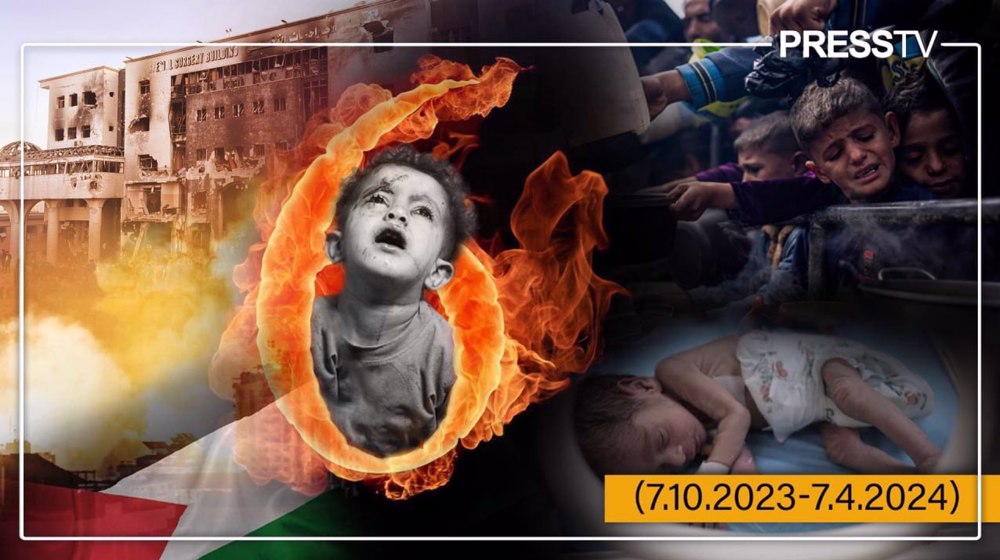
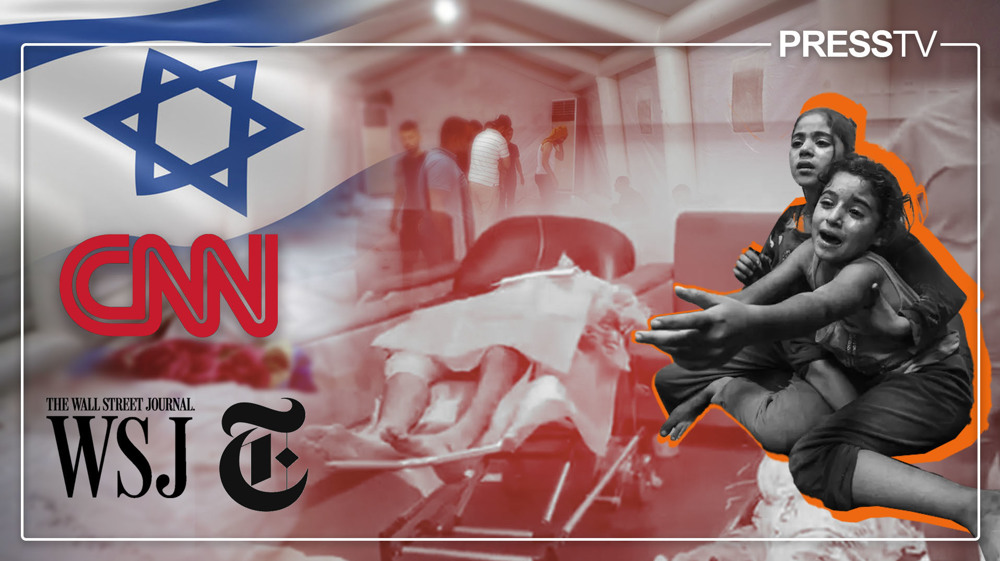
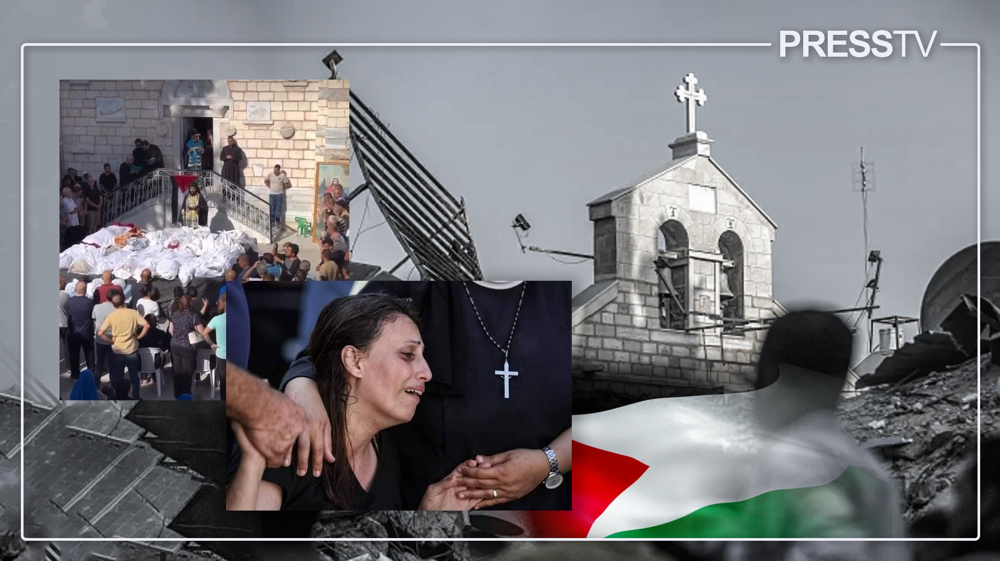
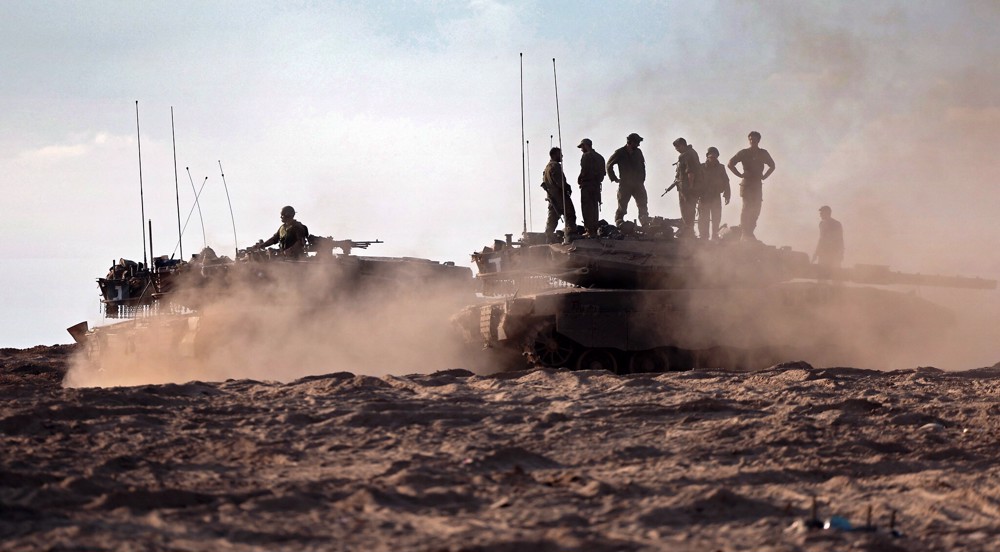
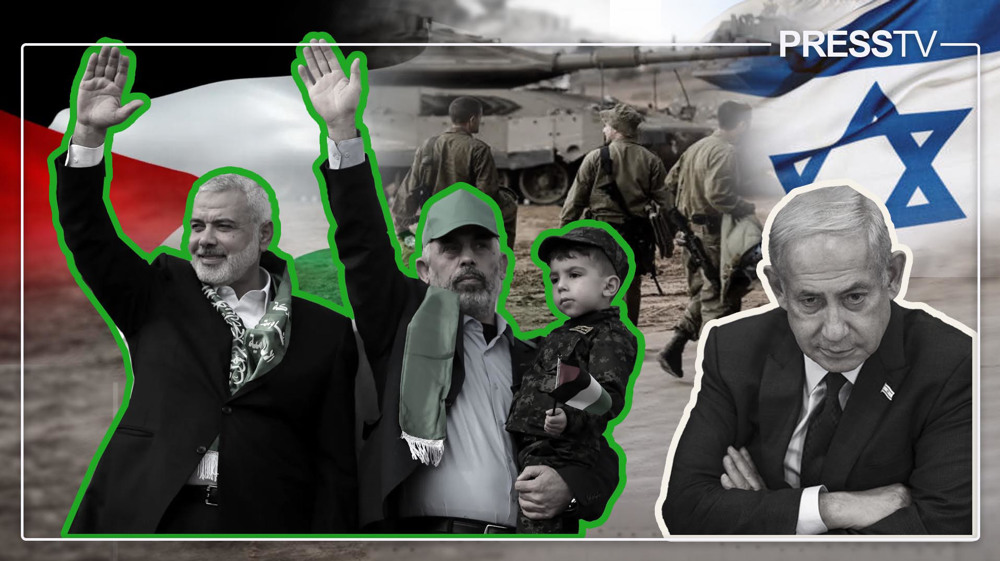
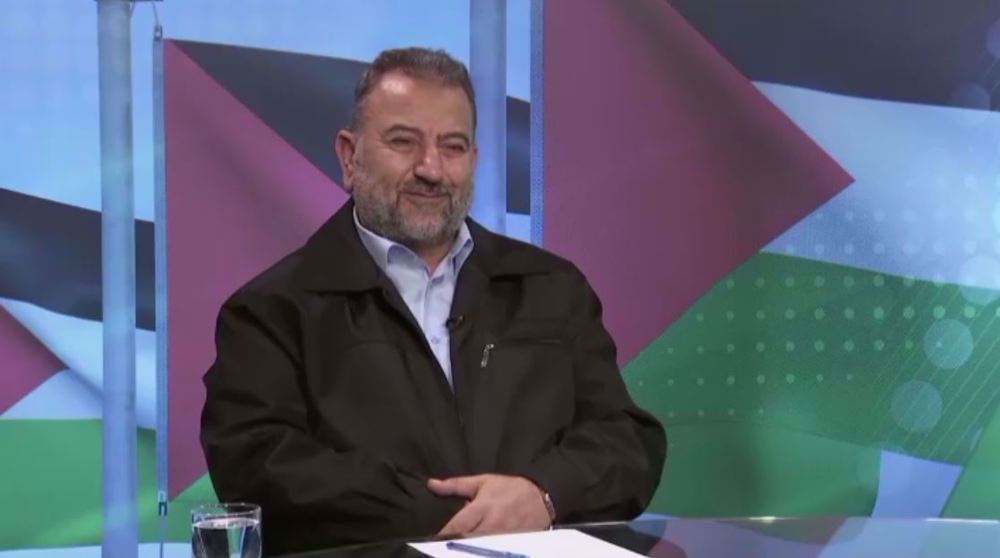

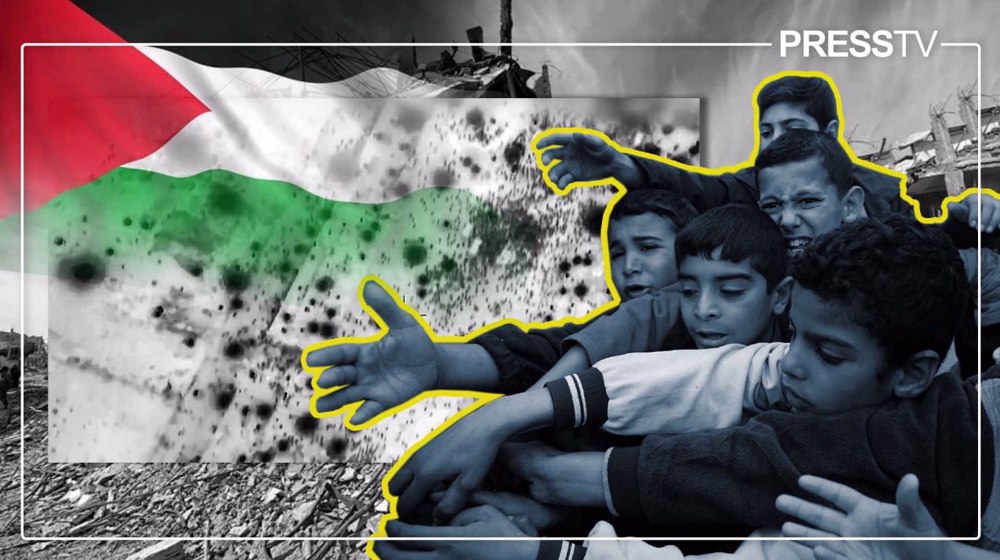
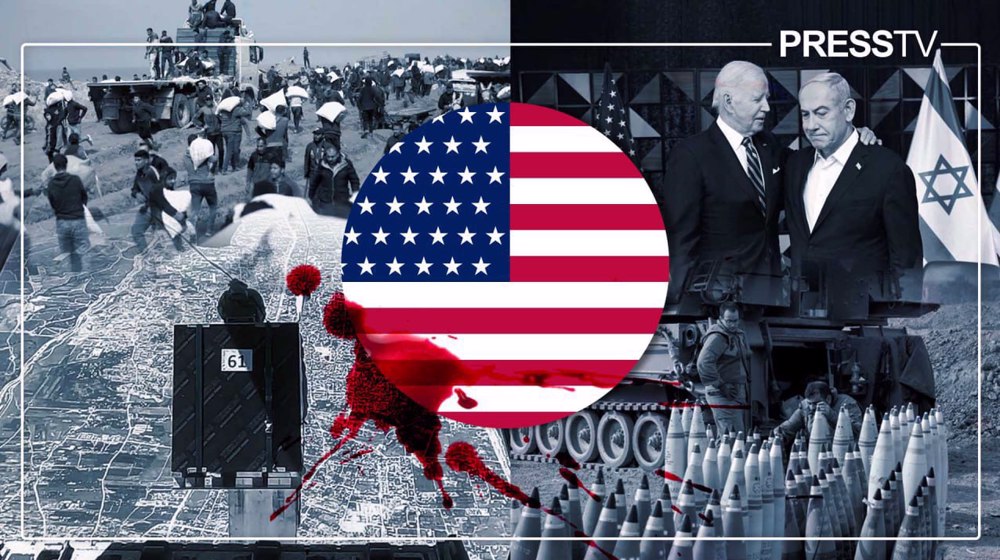
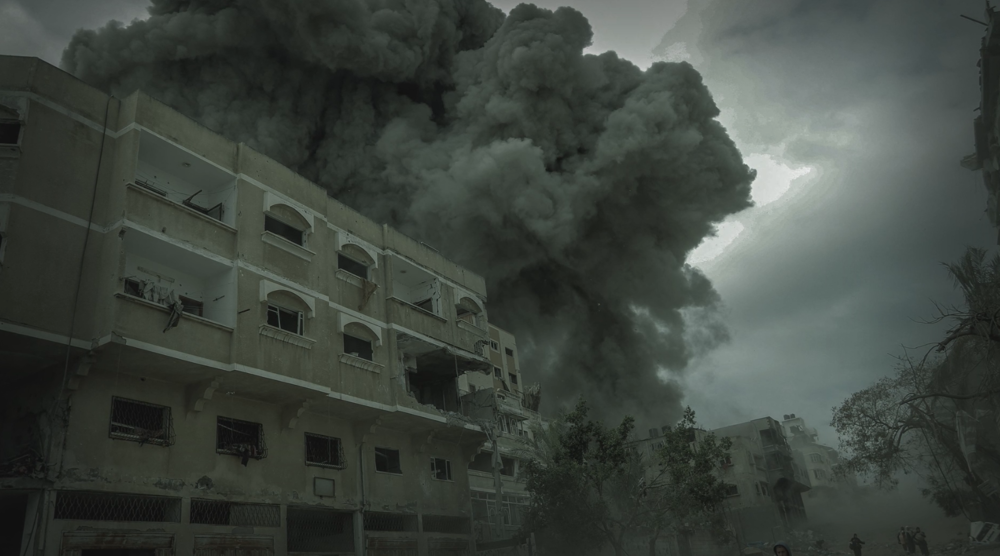
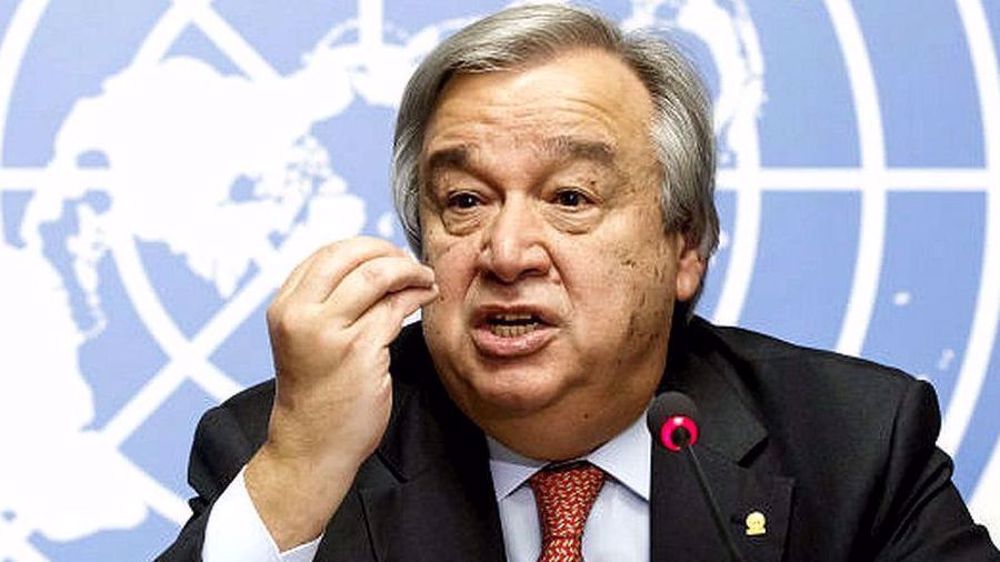
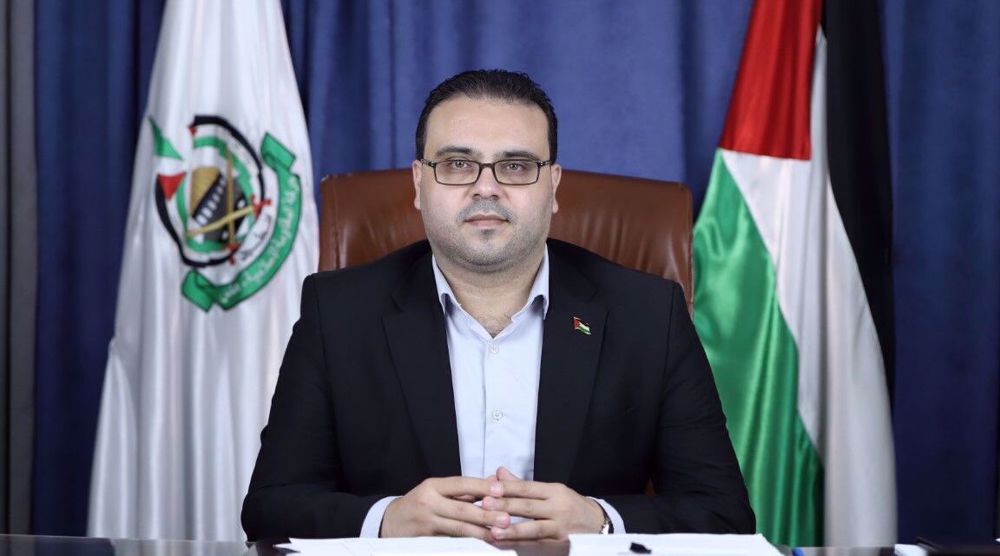
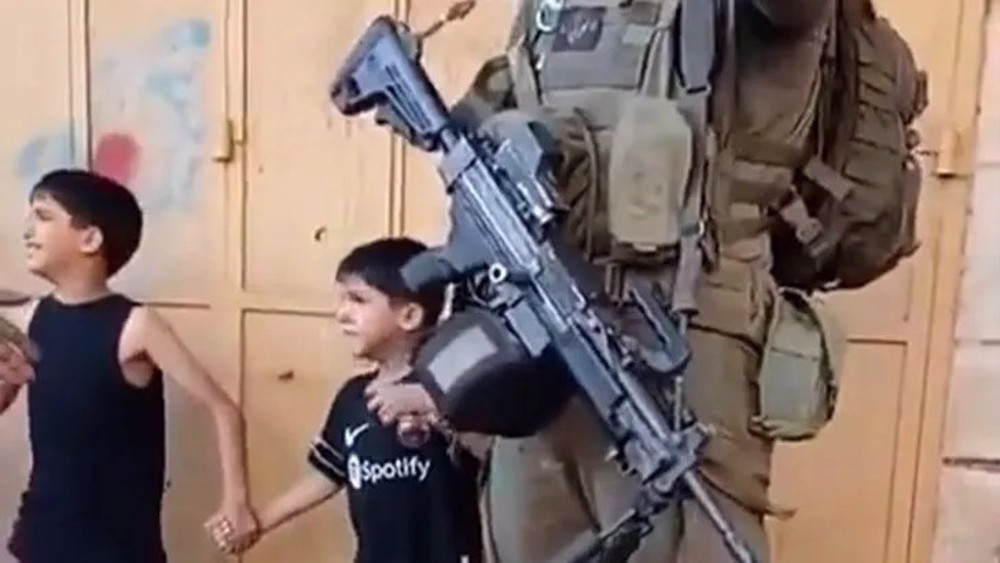
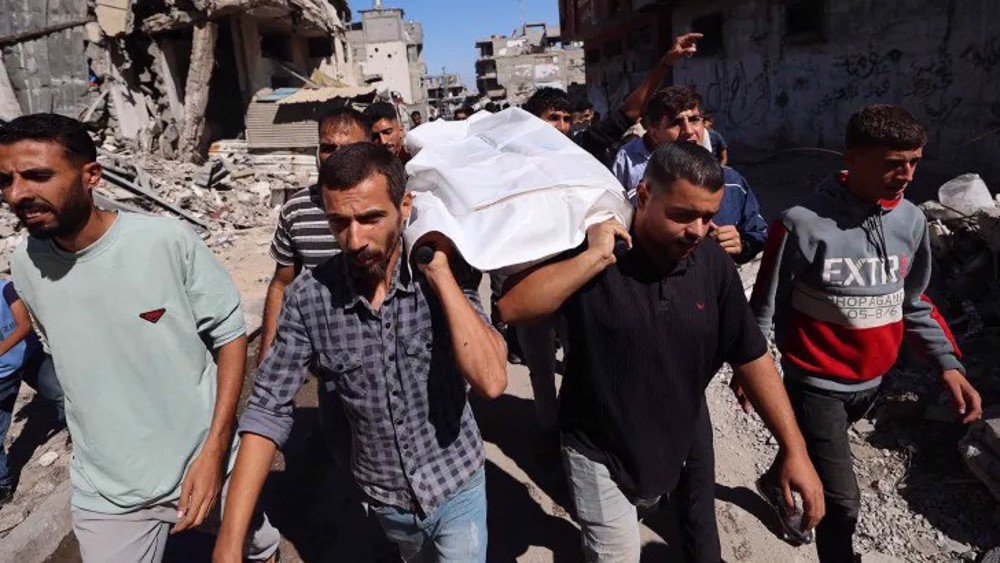



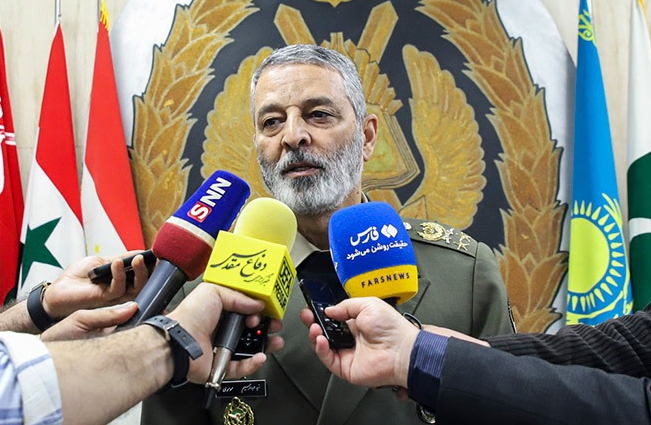
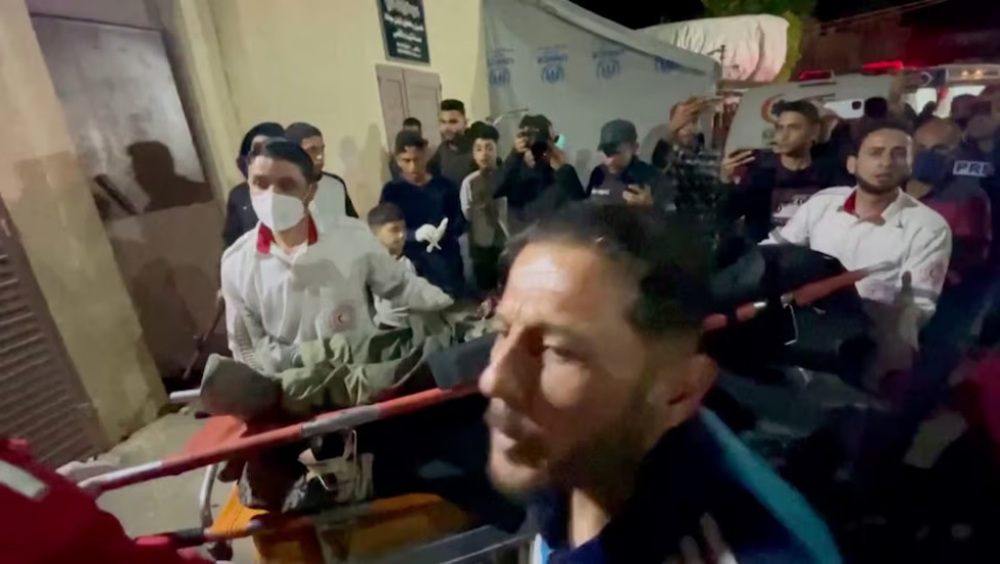
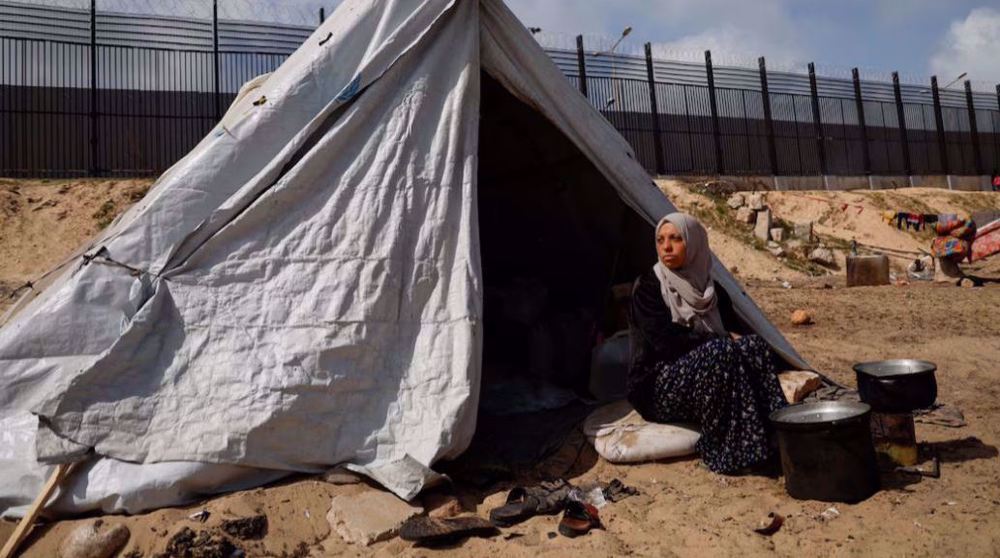
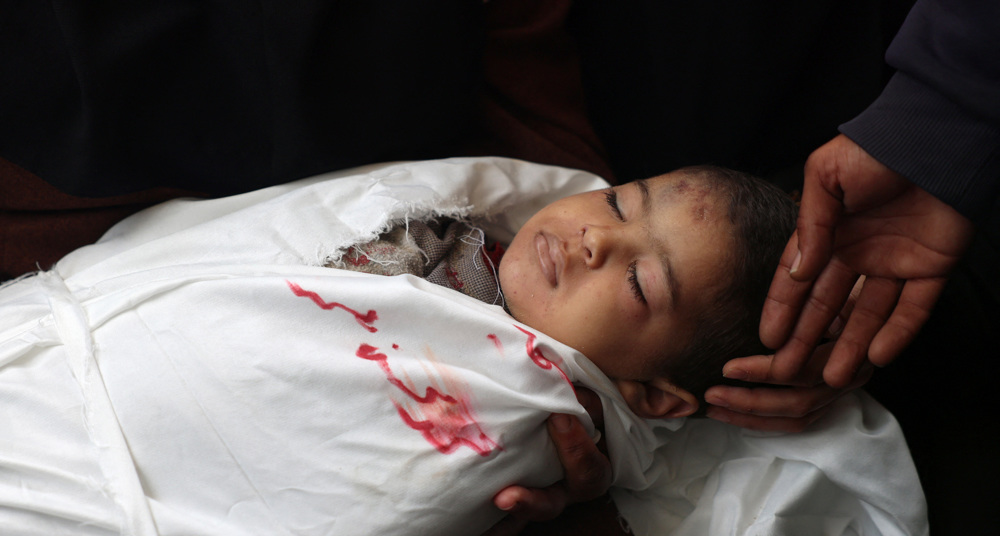
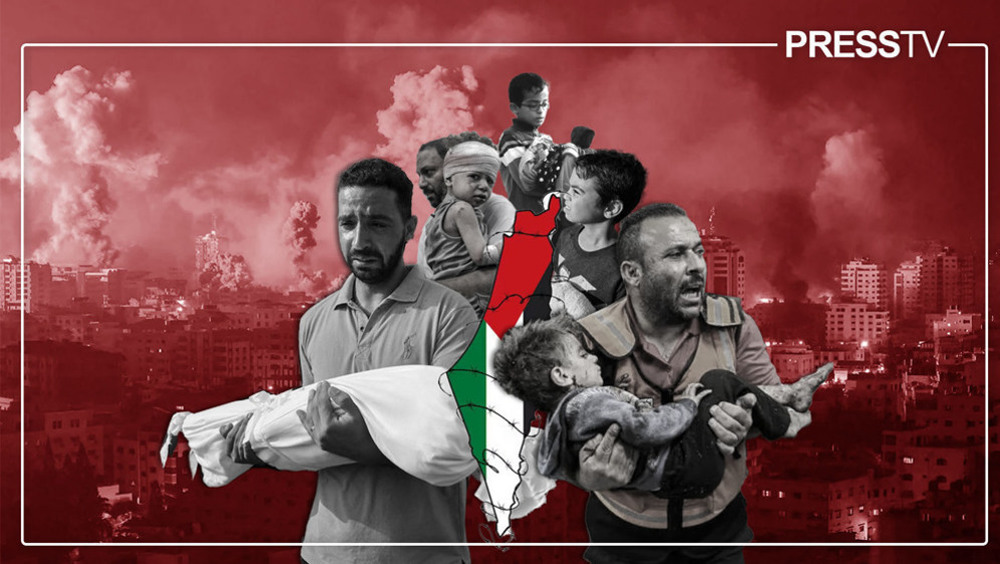

 This makes it easy to access the Press TV website
This makes it easy to access the Press TV website